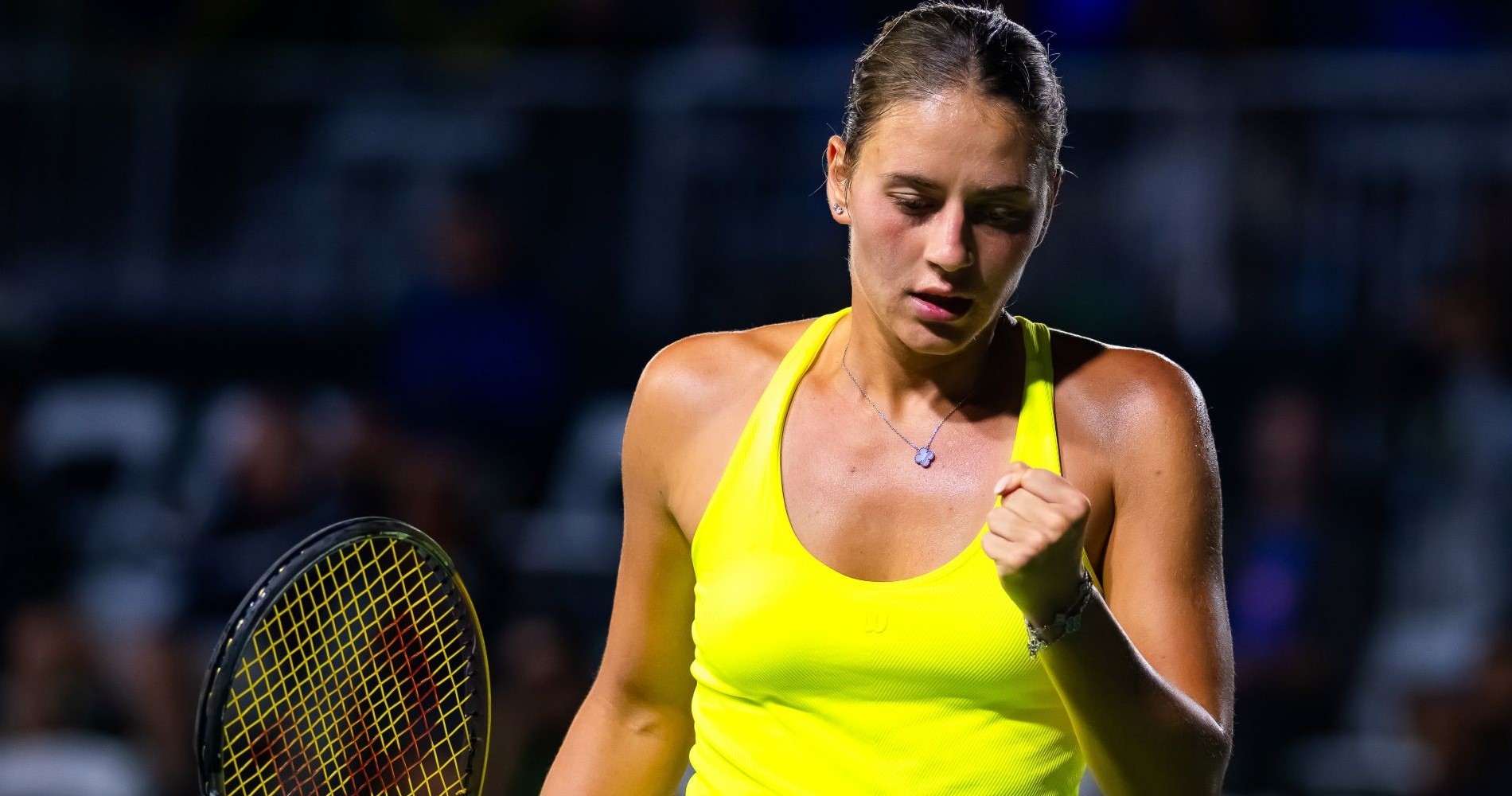
Despite having just reached the fourth round of the Australian Open for the first time in her career, Marta Kostyuk’s post-match press conference struck a sombre, serious tone.
For good reason.
The Ukrainian’s home country is fast approaching a desperately unwelcome milestone as the two-year anniversary of its invasion by Russia arrives next month.
Quite understandably, this is still front and centre of Kostyuk’s mind, regardless of her achievements on the tennis court.
“The war is still there. People are still dying every day,” said Kostyuk.
“My mum sends me videos when there are missiles flying over their house. My whole family is in Kyiv right now.”
no handshake remains important for kostyuk
The world No 41 marked a happier milestone of her own as she beat Russian Elina Avanesyan in three sets to progress to the last 16 at Melbourne Park for the first time in her career. It also equals her best run at a Grand Slam, when she reached the fourth round of Roland-Garros in 2021.
Still only 21 years of age, Kostyuk is quietly putting together a thoroughly promising young career, one that perhaps has been overlooked because her focus in press is often directed to more pressing matters.
Kostyuk, like all the Ukrainian players since the invasion began, has refused to shake hands with Russian and Belarusian tennis players – something which was again the case after her win over Avanesyan yesterday.
“I still don’t understand what all these players are doing here. Nothing really changed in my world,” was all Kostyuk had to say on the matter.
The absence of a handshake between players of these nations was once a lightning rod for media and spectator attention, but has since become customary.
Kostyuk fears a loss of western media interest in ukraine
The engraining of this once headline-grabbing act of defiance into the wider routine of match-day ritual is emblematic of Kostyuk’s fears that the world – and specifically, western media – have lost interest in reporting on matters relating to the war in Ukraine.
“I feel like in general it’s a lot of processes happening to come to this point where people forget about it because, yeah, people get used to it.
“It really feels like everyone is just… I feel like west tries to silent everything down, like to talk less about it, to not escalate anything.
“Unfortunately it’s not breaking news anymore, so journalists are not interested in it. It’s no drama. Why talking about it if there’s no drama?
“But in reality, the reality that I’m living in, is everything is very far from being over. We are not in a good — not that we’re not in a good position now. We’ve never been in a good position because it’s completely unequal and terrible war.”
Behind the delirium of a sun-soaked summer crowd and the spectacle of the first Grand Slam of the year, unspoken links to wider political and economic conflicts hide in plain sight.
When a player whose country is approaching the two-year anniversary of an unprovoked invasion on its soil speaks of her disillusionment with the apparent disinterest of the media, it is surely incumbent upon all within the tennis media community and beyond to take those words to heart.
“We’re just in survival mode for the last two years. People are incredibly depressed now and tired,” Kostyuk added, near the end of a long and passionate answer.
“I don’t feel like it’s stopping anytime soon, and I don’t feel like anyone is doing anything about it.”
You might also like this